-
Manmade mercury emissions decline 30 percent between 1990 and 2010

Mercury is a metallic element that poses environmental health risks to both wildlife and humans when converted to methylmercury in ecosystems. It can be converted into gaseous emissions during various industrial activities, as well as natural processes like volcanic eruptions. Between 1990 and 2010, global mercury emissions from manmade sources declined 30 percent. New research finds.
-
-
New test for infectious disease promises quick diagnosis
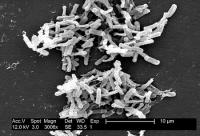
Researchers have come up with a way for inventing molecule probes quickly to identify deadly bacterial strains of infectious disease. The test can be done in less than an hour, compared to the current forty-eight hours, allowing for rapid, more accurate treatment of patients.
-
-
Suicide bomber kills 15 outside polio clinic in Quetta, Pakistan
The Taliban’s violent campaign against bringing Western medicine to children in Pakistan, a campaign which focused primarily on disrupting the efforts of the Pakistani government and international NGOs to fight polio, continues. Earlier today (Wednesday), a suicide bomber has killed at least fifteen people, most of them police, outside a polio eradication center in the city of Quetta in western Pakistan.
-
-
Cheat-proof smartphone knows when you are faking activity

Health care providers and insurance companies are increasingly relying on smartphone and wearable activity trackers to reward active individuals for healthy behavior or to monitor patients. But because activity trackers can be easily deceived, researchers have designed a way to train smartphone trackers to spot the difference between fake and real activity.
-
-
Sharing of research data, findings should be the norm in public health emergencies

Opting in to data sharing should be the default practice during public health emergencies, such as the recent Ebola epidemic, and barriers to sharing data and findings should be removed to ensure those responding to the emergency have the best available evidence at hand, experts say.
-
-
Toxins found in fracking fluids and wastewater: Study

In an analysis of more than 1,000 chemicals in fluids used in and created by hydraulic fracturing (fracking), researchers found that many of the substances have been linked to reproductive and developmental health problems, and the majority had undetermined toxicity due to insufficient information. The researchers say that further exposure and epidemiological studies are urgently needed to evaluate potential threats to human health from chemicals found in fracking fluids and wastewater created by fracking.
-
-
Gov. Brown declares emergency in wake of massive L.A. natural gas leak
California governor Jerry Brown on Wednesday declared an emergency in a Los Angeles neighborhood where a natural gas well has been spewing record amounts of stinking, global-warming methane gas. Energy experts said the breach at the natural gas storage reservoir, and the subsequent, ongoing release, are the largest known occurrence of its kind.
-
-
Drought, heat deleterious for global crops
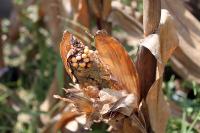
Drought and extreme heat slashed global cereal harvests between 1964 and 2007 — and the impact of these weather disasters was greatest in North America, Europe, and Australasia. At a time when global warming is projected to produce more extreme weather, a new study provides the most comprehensive look yet at the influence of such events on crop area, yields, and production around the world.
-
-
Identifying areas of plague risk in Western U.S.
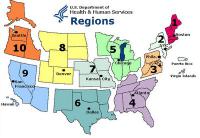
Plague was first introduced into the United States in 1900, by rat–infested steamships which had sailed from affected areas. Epidemics occurred in port cities, with the last urban plague epidemic in the United States occurring in Los Angeles from 1924 through 1925. Researchers have identified and mapped areas of high probability of plague bacteria in the western United States. The findings may be used by public health agencies to aid in plague surveillance.
-
-
Global reductions in mercury emissions should lead to billions in economic benefits for U.S.
Mercury pollution is a global problem with local consequences: Emissions from coal-fired power plants and other sources travel around the world through the atmosphere, eventually settling in oceans and waterways, where the pollutant gradually accumulates in fish. Consumption of mercury-contaminated seafood leads to increased risk for cardiovascular disease and cognitive impairments. A new study reports that global action on reducing mercury emissions will lead to twice the economic benefits for the United States, compared with domestic action, by 2050. However, those in the United States who consume locally caught freshwater fish, rather than seafood from the global market, will benefit more from domestic rather than international mercury regulations.
-
-
Study links insurgency phase of Iraq War to higher PTSD rates

Guerilla tactics such as suicide attacks and roadside bombs may trigger more posttraumatic stress than conventional warfare, suggests a Veterans Affairs study of 738 men and women who served in Iraq. The study found that among the men — about half the overall group — the insurgency-phase veterans were more than twice as likely to have a diagnosis of PTSD, compared with those who served in either of the other two phases.
-
-
Making mobile health more secure

With Internet-connected medical technology and digitized health records on the rise, cybersecurity is a growing concern for patients and hospitals alike. For example, a patient’s insulin pump may accept dosage instructions from unauthorized smartphones that have been infected with malicious software, or a patient’s fertility-tracking app could expose itself to nearby strangers by probing for a Bluetooth device to connect with. One research team is taking a holistic approach to strengthening the medical system’s security — from the computer networks that support hospitals, to the cloud, to the smart phone in your pocket.
-
-
Climate-induced disasters linked to food security across time and place
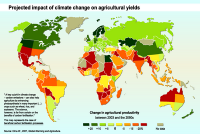
Teams of researchers in the American Southwest and North Atlantic Islands have found that historic and prehistoric peoples in these regions who had created vulnerabilities to food shortfall were especially susceptible to impacts from climate challenges. Their “natural” disasters were human made in conjunction with climate challenges.
-
-
“Kill switches” shut down engineered bacteria
Many research teams are developing genetically modified bacteria that could one day travel around parts of the human body, diagnosing and even treating infection. Before such bacteria can be safely let loose, however, scientists will need to find a way to prevent them from escaping into the wider environment, where they might grow and cause harm. To this end, researchers have developed safeguards in the form of two so-called “kill switches,” which can cause the synthetic bacteria to die without the presence of certain chemicals. This synthetic biology technique could make it safer to put engineered microbes to work outside the lab.
-
-
Wild bee decline threatens U.S. crop production
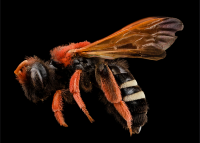
About 39 percent of U.S. croplands depend on pollinators — from apple orchards to pumpkin patches. Between 2008 and 2013, the number of bees in the contiguous United States declined in 23 percent, creating a mismatch between rising demand for pollination and a falling supply of wild bees. The first national study to map U.S. wild bees suggests they are disappearing in many of the country’s most important farmlands — including California’s Central Valley, the Midwest’s corn belt, and the Mississippi River valley. If losses of these crucial pollinators continue, the new nationwide assessment indicates that farmers will face increasing costs — and that the problem may even destabilize the nation’s crop production.
-
More headlines
The long view
Ransomware Attacks: Death Threats, Endangered Patients and Millions of Dollars in Damages
A ransomware attack on Change Healthcare, a company that processes 15 billion health care transactions annually and deals with 1 in 3 patient records in the United States, is continuing to cause massive disruptions nearly three weeks later. The incident, which started on February 21, has been called the “most significant cyberattack on the U.S. health care system” by the American Hospital Association. It is just the latest example of an increasing trend.
